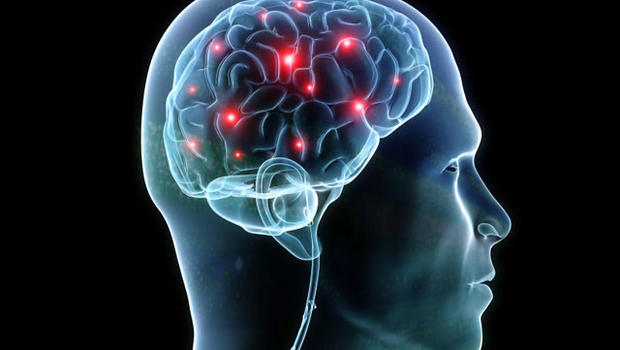
In a normal, healthy body, old or damaged cells are constantly killed off to make way for new, healthy cells. But in the presence of inflammation, which can damage cells’ mitochondria (the organelle in cells that oversees this regulatory process), in turn impairing the mitochondria’s decision-making, inducing suicide in normal, healthy cells. It’s this erroneous mechanism that destroys neurons, leading to the neurodegenerative conditions listed above.
RELATED: On What 6 Common Brain Farts Really Mean
So what does inflammation have to do with diet? It all goes back to the microbiome. When your gut bacteria are out of whack, you are more susceptible to leaky gut syndrome, or the permeability of the intestinal wall, which is a precursor to inflammatory pathways. One substance in particular – LPS (lipopolysaccharide) – is a marker for inflammation when it’s found in the blood. In a healthy digestive body, LPS never makes it out into the blood stream, but if it does it can become quite destructive. Perlmutter said that three times as much LPS in the plasma of Alzheimer’s patients.
Fortunately when you repair your gut and microbiome through diet, you can manage inflammation and boost your brain’s health.
By having a flourishing microbiome you control inflammation, strengthen the gut wall, and produce important chemicals for brain health, like vitamin B12.
To combat inflammation and repair the damage it leaves behind, Perlmutter prescribes a diet rich in probiotics, such as sauerkraut, yogurt, and naturally pickled foods, as well as the prebiotics that nourish these healthy microbes. Prebiotics include Jerusalem artichokes, garlic, and onions. Another plug for coffee, Perlmutter writes that studies have shown that people who drink between three and five cups a day at midlife boast an “incredible 65 percent decreased risk for developing Alzheimer’s in comparison” to those who drank less. And this protective benefit of the coffee starts at gut bacteria level, too. Better yet, red wine, tea, and chocolate are also encouraged for the health of your noggin.
On the “DON’T CONSUME” list, he has writes that you should avoid refined sugars, high-sugar fruit, gluten, GMOs, and unnecessary antibiotics.
This diet also aids in helping with other brain-related conditions, such as depression, ADHD, and autism.


